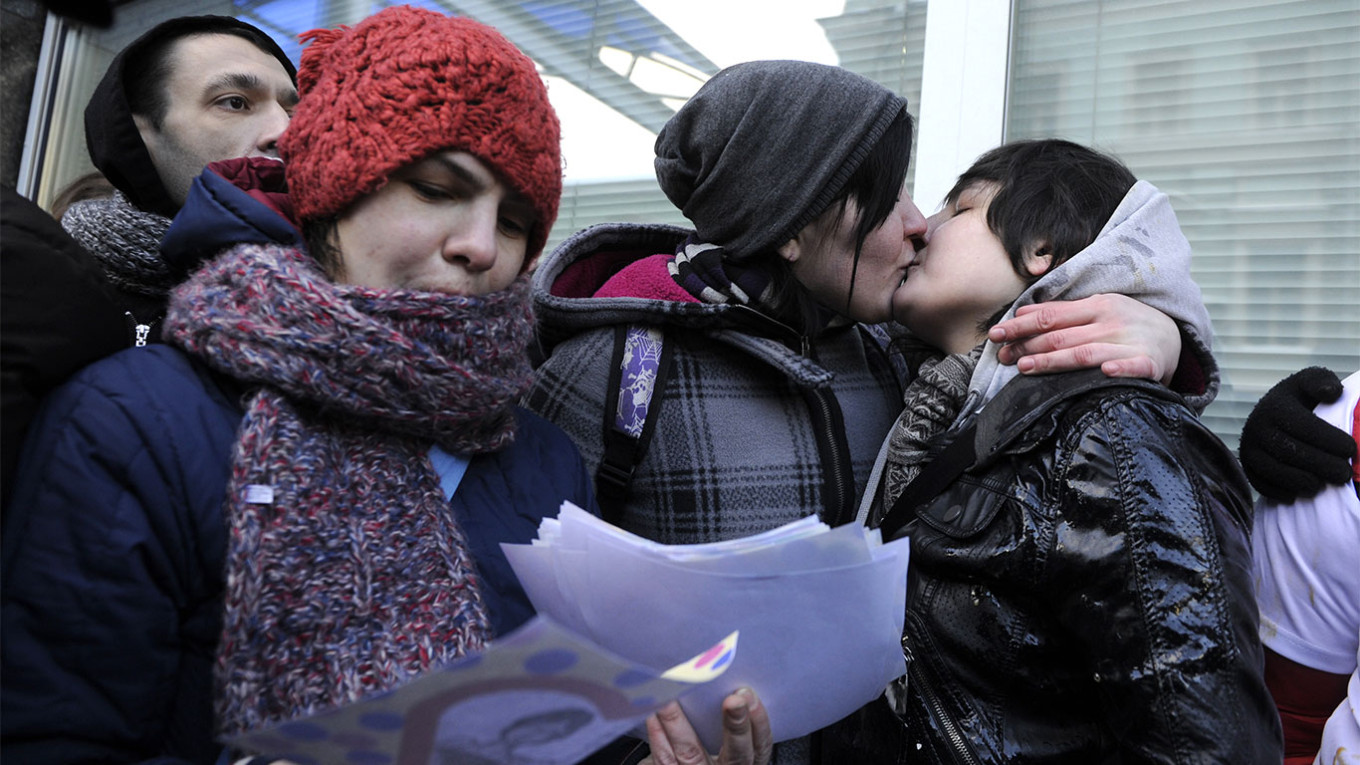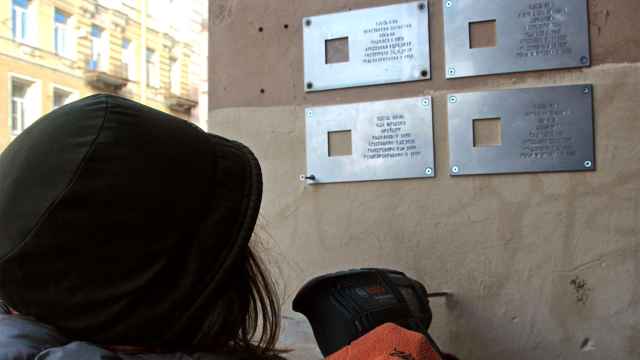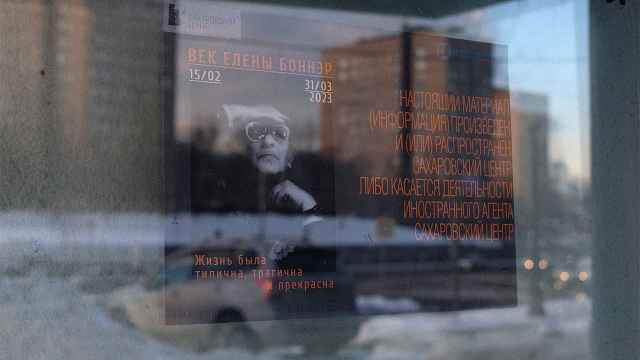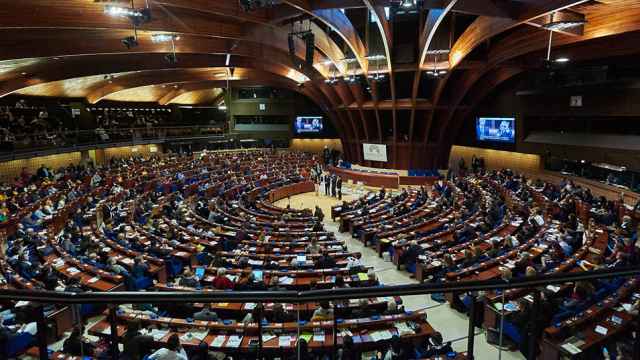The story of how I escaped kidnapping and survived conversion therapy in Russia formed part of a recent report in The Moscow Times. I was beaten and forced to castrate a pig because I wanted gender-affirming surgery.
Unfortunately, I am not the only one who has faced this struggle. Through collaborative efforts with a few other queer activists, I have documented over 5 similar cases over the past six months. While conversion therapy used to be confined to the southern regions of Russia, today it has spread across the country. This trend is a troubling illustration of Russia’s trajectory.
I should begin by emphasizing that the term "conversion therapy" itself is a misnomer. While it implies a legitimate therapeutic approach, that is far from the reality. Recently, terms like SOCE or GICE (sexual orientation or gender identity change efforts) have started to gain traction. They more closely describe the accepted definition of conversion therapy – an attempt to change one’s sexual orientation to heterosexual, or make their gender identity correspond with the sex they were identified as at birth. While I acknowledge the ongoing attempts to move away from the outdated term, I will utilize "conversion therapy" for clarity in this piece.
Since homosexuality was removed from the Diagnostic and Statistical Manual of Mental Disorders (DSM) in 1973, scientific consensus has unequivocally condemned the practice as unethical and harmful. According to the Human Rights Campaign, conversion therapy can lead to depression, anxiety, substance abuse, self-harm, and suicide among LGBTQ+ people, with younger people at particular risk.
Despite the overwhelming evidence that it is harmful and ineffective, conversion therapy is still legal in most of the world. An estimated 700,000 LGBTQ+ adults in the US have been subjected to it in some form. It is almost impossible to provide similar statistics for Russia due to a lack of a clear definition, societal stigma, and restrictions posed by the queerphobic state.
One survivor, whom I’ll call Noah, endured over eighteen months of captivity in a conversion therapy facility. Their attempts to hold their captors accountable were met with an impenetrable wall of bureaucracy and indifference from the police.
“The system is rigged against you,” Noah told me. “Every piece of evidence, every witness, it's all stacked against you. Not even my parents, who now avoid me, were there to support me”.
Despite the insurmountable odds, Noah refuses to give up. “In the end, you have two choices,” they explain, “fight back with everything you've got, or surrender to what they did to you.”
Noah chose the former, channeling their trauma into activism. They are now a part of an initiative against conversion therapy in Russia, even in the face of the new law targeting the LGBTQ+ community, proclaiming it extremist.
Not all survivors, however, find solace in activism. Piper, a 38-year-old transgender woman who fled a conversion camp in the early 2000s, chose a different path. After initially facing countless obstacles in seeking justice against her perpetrators, she opted for a different form of resistance. This meant not just refusing to let the trauma of the camp control her life, but also carving a future where she could exist authentically as herself, without being crushed by the weight of her past. Today, while she does not take part in activism, she lives a quiet life across the ocean that would be impossible in today’s Russia.
I believe it's crucial to contextualize these individuals’ experiences within Russia's current political landscape. The surge in human rights violations since Feb. 2022, from kidnapping Ukrainian children to abortion bans, reflects the Kremlin’s possessive mindset towards both neighboring countries and its own citizens. This aligns with the conservative environment Russia has cultivated since the start of Putin’s presidency, making it one of the most dangerous countries to be LGBTQ+ in the world.
Our harrowing experiences with conversion therapy, though deeply personal, might offer a crucial lens through which we could understand what motivates Russia's government, elites, and even ordinary citizens beyond Moscow. It exposes a deep-seated queerphobia and fear of anyone who is different, fueled by ignorance, prejudice, and a misguided sense of righteousness. The Orthodox Church, who drive much of this intolerance, is forgetting that their own Bible says they will “perish in their righteousness.”.
Driven by a desire for immediate solutions and conformity, families – driven by tradition, reputation, or a distorted notion of normality – readily engage in these harmful practices. This demand feeds a dangerous system where members of the medical community commit grievous harm for profit and favor from the state.
In turn, this creates a vicious cycle where discrimination becomes normalized and abuses worsen. But our stories, as well as countless tales from outside Russia, are a testament to the immense human cost. Conversion therapy shatters families and creates irreversible psychological trauma leading to, in the worst cases, loss of life.
Just as conversion therapy seeks to erase the very essence of an individual's identity and bend them into a required shape, Russia's war in Ukraine is an attempt to subjugate and strip a sovereign nation of its right to self-determination.
The truly scary parallel extends to the domestic front. Women are denied a fundamental choice over their bodies through mounting restrictions on abortion, echoing how the Russian people are denied their right to choose their own path. These are not isolated acts, but threads woven into the same tapestry of oppression.
The driving force behind both conversion therapy and Russia's aggression is a desperate clinging to an outdated notion of conformity. Conversion therapy is seen as a brutal quick fix to make the “wrong” people “right”. Similarly, on a national scale, Russia seeks to enforce its vision of order and unity, even if it means silencing any voice that dares to deviate from the script. But this obsession with control and forcing compliance through fear only breeds despair.
Our stories, and countless others like them, are testaments to the devastating consequences of conversion therapy. Just as Ukraine bears the scars of Russia's disregard for human dignity, so too do the victims of conversion therapy carry the invisible wounds of a vicious assault on their identity.
So, what does it mean for Russia and what can be actually done?
Ignoring the cries of the oppressed within Russia fuels both domestic human rights violations and the nation's aggressive foreign policy. However, the response from the exiled Russian opposition has been characterized by internal divisions and power struggles, rather than concerted efforts to hold Russia accountable for specific abuses. Doing so requires coordinated efforts with international organizations. Exposing the human cost through individual stories, rather than solely relying on statistics, is crucial in compelling Russia to confront the consequences of its actions.
While addressing the horrors of conversion therapy is undeniably important for protecting LGBTQ+ individuals, the underlying objective extends beyond this specific issue. It aims to dismantle the systemic structures of control that establish oppression both within families and between the state and citizens on a global scale. Collective action, supported by unwavering demands for accountability and collaborative efforts to break the cycle of intolerance, can pave the way for a future where individuals, regardless of their identity or origin, can exist in Russia with dignity and freedom.
A Message from The Moscow Times:
Dear readers,
We are facing unprecedented challenges. Russia's Prosecutor General's Office has designated The Moscow Times as an "undesirable" organization, criminalizing our work and putting our staff at risk of prosecution. This follows our earlier unjust labeling as a "foreign agent."
These actions are direct attempts to silence independent journalism in Russia. The authorities claim our work "discredits the decisions of the Russian leadership." We see things differently: we strive to provide accurate, unbiased reporting on Russia.
We, the journalists of The Moscow Times, refuse to be silenced. But to continue our work, we need your help.
Your support, no matter how small, makes a world of difference. If you can, please support us monthly starting from just $2. It's quick to set up, and every contribution makes a significant impact.
By supporting The Moscow Times, you're defending open, independent journalism in the face of repression. Thank you for standing with us.
Remind me later.






